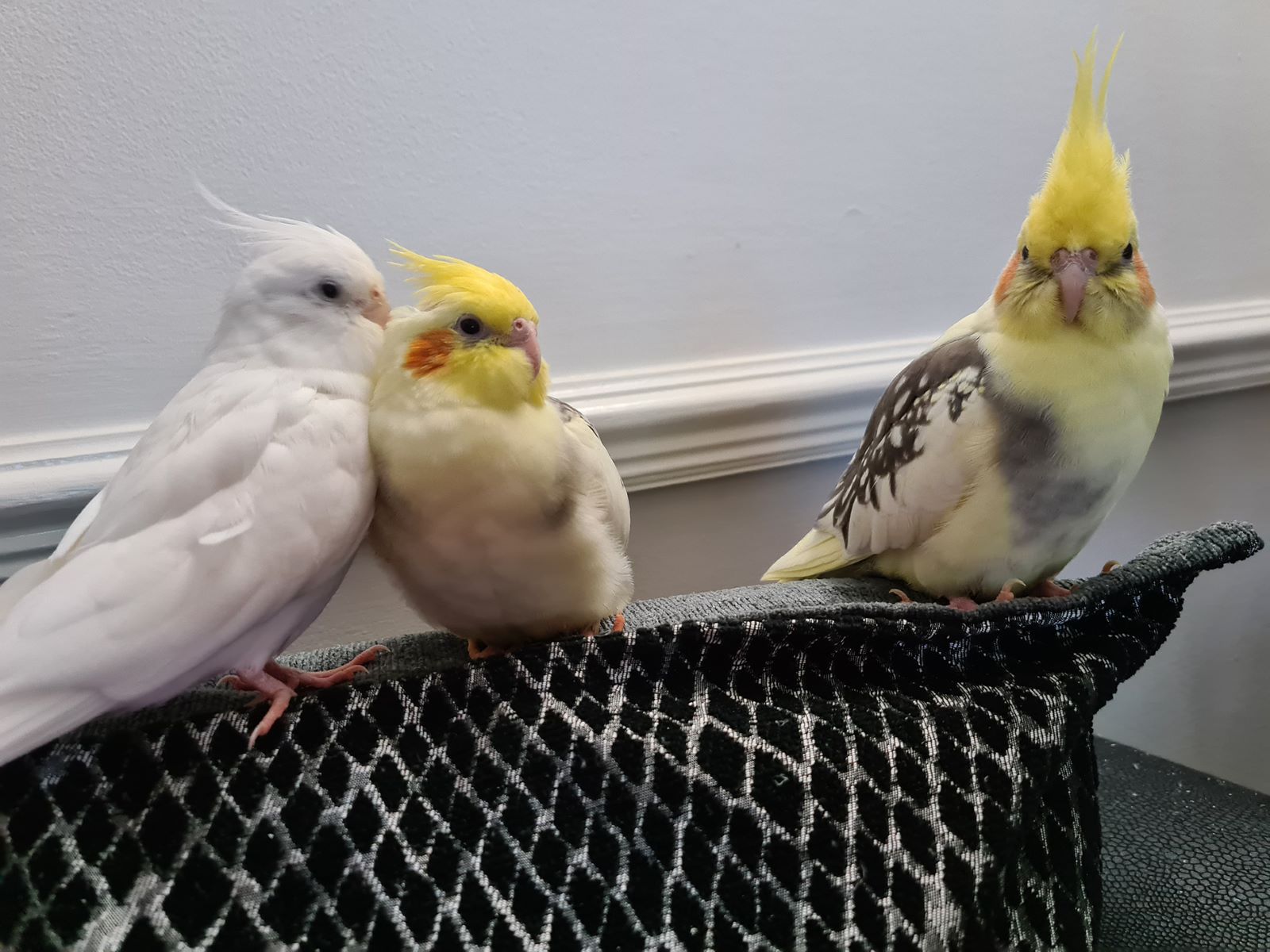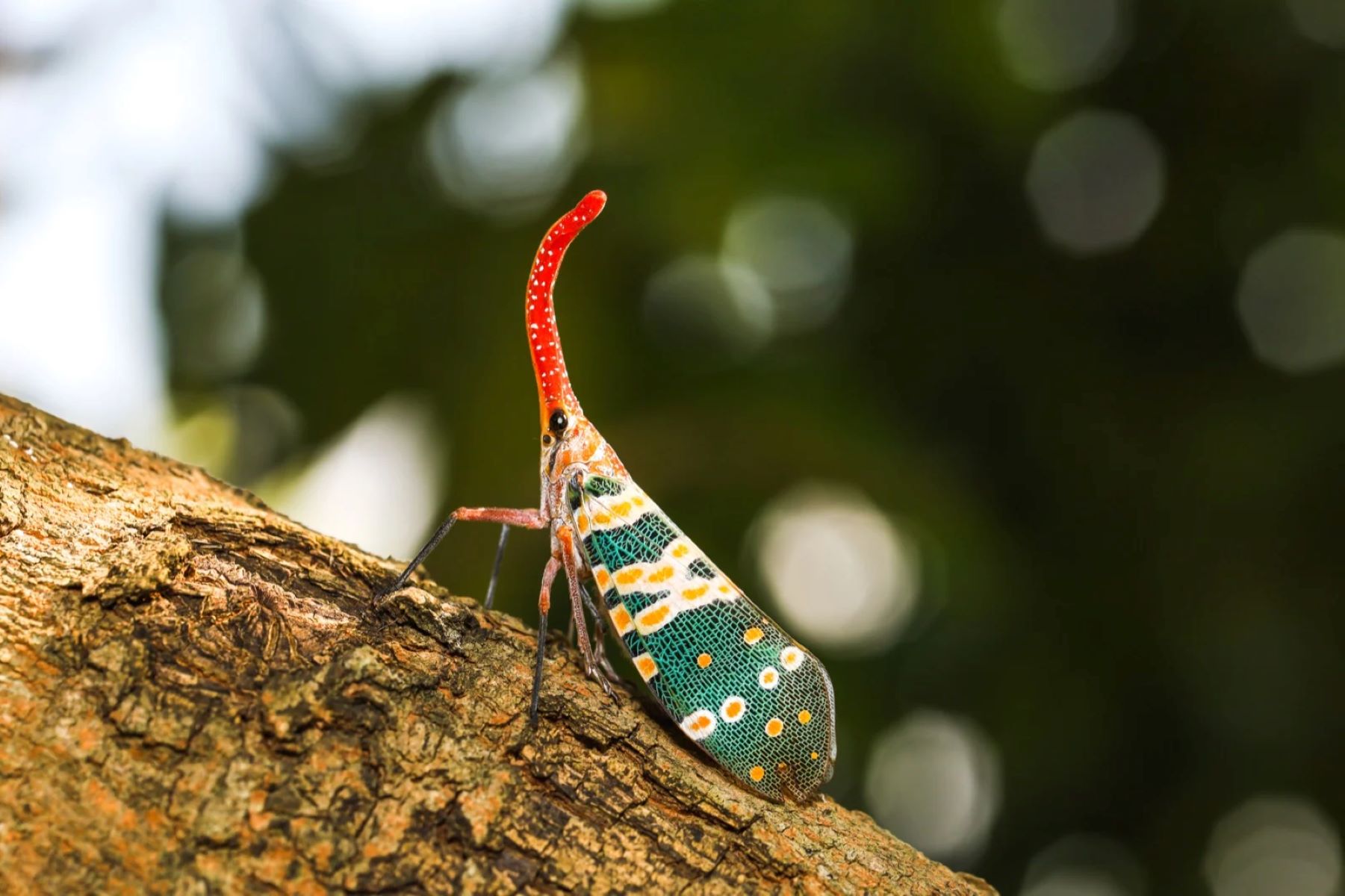Home>Pets & Animals>Unlock The Secret: Discover How Long It Takes For A Cockatiel To Master Talking!


Pets & Animals
Unlock The Secret: Discover How Long It Takes For A Cockatiel To Master Talking!
Published: February 18, 2024
Discover the fascinating journey of teaching a cockatiel to talk and the time it takes. Learn about training techniques and milestones in the world of Pets & Animals. Unlock the secret to mastering communication with your feathered friend!
(Many of the links in this article redirect to a specific reviewed product. Your purchase of these products through affiliate links helps to generate commission for Regretless.com, at no extra cost. Learn more)
Table of Contents
Introduction
Cockatiels, with their charming demeanor and melodic chirps, have long been cherished as popular avian companions. These small parrots are renowned for their intelligence and ability to mimic sounds, making them a fascinating pet choice for bird enthusiasts. Among their impressive repertoire of vocalizations, the art of talking stands out as a captivating skill that many cockatiel owners aspire to witness. In this article, we will delve into the captivating world of cockatiel talking abilities, exploring the factors that influence their verbal prowess and the training techniques that can unlock their potential. Additionally, we will uncover the burning question that often intrigues both novice and seasoned cockatiel enthusiasts: How long does it take for a cockatiel to master talking? Join us on this avian adventure as we unravel the secrets behind the captivating language skills of these delightful feathered companions.
Understanding Cockatiel Talking Abilities
Cockatiels, renowned for their exceptional vocal abilities, possess a remarkable talent for mimicking sounds and speech. These endearing parrots are equipped with a unique vocal structure that enables them to produce an array of sounds, from whistles and chirps to articulate words and phrases. Unlike some larger parrot species known for their extensive vocabularies, cockatiels typically excel in whistling tunes and imitating simple words and phrases. Their vocal prowess is attributed to their highly developed syrinx, the avian equivalent of the voice box, which allows them to produce a diverse range of sounds with impressive clarity.
One of the most captivating aspects of cockatiel vocalizations is their ability to mimic human speech. While they may not achieve the extensive vocabularies of larger parrot species, such as African Greys or Amazons, cockatiels can learn to articulate a modest repertoire of words and phrases. Their charming and often comical renditions of human speech can bring joy and amusement to their human companions.
It's important to note that not all cockatiels will display an inclination for talking. Just as with humans, individual cockatiels have varying levels of aptitude and interest in learning to talk. Factors such as genetics, environment, and socialization play a significant role in determining a cockatiel's talking abilities. Additionally, the age at which a cockatiel is introduced to speech training can influence their receptiveness to learning new vocalizations.
In summary, cockatiels possess an innate capacity for vocal mimicry, allowing them to produce a wide range of sounds, including whistles and human speech. While they may not match the extensive vocabularies of larger parrot species, their endearing attempts at mimicking human speech make them delightful and entertaining companions for bird enthusiasts.
Factors Affecting Cockatiel Talking Ability
Several factors influence a cockatiel's ability to master talking, encompassing both inherent and environmental elements. Understanding these factors is crucial for appreciating the nuances of a cockatiel's vocal development and potential.
Genetic Predisposition
Genetics play a significant role in determining a cockatiel's propensity for talking. Some individuals may inherit a natural inclination for vocal mimicry, making it easier for them to learn and reproduce human speech. Conversely, others may exhibit less enthusiasm or aptitude for verbal imitation due to their genetic makeup.
Socialization and Environment
The socialization and environment in which a cockatiel is raised profoundly impact their ability to talk. Cockatiels that are exposed to human interaction, conversation, and a variety of sounds from a young age are more likely to develop proficient talking skills. Additionally, a stimulating and enriching environment can foster a cockatiel's curiosity and eagerness to mimic sounds, including speech.
Age of Introduction to Speech Training
The age at which a cockatiel is introduced to speech training can influence their receptiveness and proficiency in learning to talk. Young cockatiels, particularly those in their early developmental stages, are generally more adaptable and receptive to acquiring new vocalizations. Introducing speech training during this critical period can enhance their ability to mimic and articulate words and phrases.
Individual Personality and Temperament
Just as with humans, each cockatiel possesses a unique personality and temperament. Some individuals may display a natural proclivity for vocal mimicry and enjoy the attention garnered from speaking, while others may exhibit a more reserved or less vocal disposition. Understanding and accommodating a cockatiel's individual traits is essential for nurturing their talking abilities.
Consistent Training and Reinforcement
Consistent and patient training, coupled with positive reinforcement, is paramount for developing a cockatiel's talking skills. Regular interaction, repetition of words and phrases, and rewarding successful attempts at vocal mimicry can encourage a cockatiel to persist in their linguistic endeavors.
In summary, a combination of genetic predisposition, socialization, age of introduction to speech training, individual personality, and consistent training efforts collectively influence a cockatiel's talking ability. By considering and addressing these factors, bird enthusiasts can create an optimal environment for nurturing their cockatiel's vocal talents and fostering a rewarding companionship based on delightful verbal interactions.
Training Techniques for Teaching Cockatiels to Talk
Teaching a cockatiel to talk requires patience, consistency, and a deep understanding of avian behavior. By employing effective training techniques, bird enthusiasts can create an engaging learning environment that encourages their feathered companions to develop their talking abilities.
1. Establishing a Bond of Trust
Building a strong bond of trust with a cockatiel is the foundation for successful speech training. Spending quality time with the bird, engaging in gentle interactions, and offering favorite treats can foster a sense of security and comfort, laying the groundwork for effective communication.
2. Enriching the Environment
Providing a stimulating and enriching environment is essential for nurturing a cockatiel's curiosity and desire to mimic sounds, including speech. Playing soft music, engaging in casual conversations, and exposing the bird to a variety of sounds can cultivate an auditory-rich setting conducive to learning.
3. Repetition and Consistent Interaction
Consistent repetition of words and phrases, coupled with frequent interaction, forms the cornerstone of speech training. Speaking clearly and enunciating words while maintaining eye contact with the cockatiel can aid in reinforcing vocal patterns and encouraging imitation.
4. Positive Reinforcement
Utilizing positive reinforcement, such as offering treats or verbal praise, when the cockatiel attempts to mimic sounds or successfully articulates words can motivate the bird to persist in its vocal endeavors. This encourages a positive association with verbal mimicry and fosters a sense of accomplishment.
5. Patience and Understanding
Patience is paramount when teaching a cockatiel to talk. Each bird progresses at its own pace, and understanding the individual's learning style and preferences is crucial. Avoiding pressure and allowing the bird to learn at its own speed promotes a stress-free and enjoyable training experience.
6. Utilizing Training Aids
Incorporating training aids, such as audio recordings or videos of human speech, can provide additional auditory stimuli for the cockatiel. Playing these recordings in the bird's presence can expose it to a diverse range of vocalizations, potentially enhancing its repertoire of mimicked sounds.
By implementing these training techniques with dedication and a nurturing approach, bird enthusiasts can create an environment that encourages their cockatiels to develop their talking abilities. Each bird's progress is unique, and with patience and consistent effort, the rewarding experience of communicating with a talking cockatiel can be realized.
How Long it Takes for a Cockatiel to Master Talking
The timeline for a cockatiel to master talking is a subject of curiosity for many bird enthusiasts. However, pinpointing an exact duration for a cockatiel to master talking is challenging, as it hinges on a myriad of variables. These factors encompass the bird's individual disposition, genetic predisposition, socialization, and the training techniques employed by its human companion.
Typically, the age at which a cockatiel is introduced to speech training significantly influences the timeline for mastering talking. Young cockatiels, particularly those in their early developmental stages, tend to display greater receptiveness and adaptability to learning new vocalizations. Introducing speech training during this critical period can lay a solid foundation for the bird's linguistic development. However, it's important to acknowledge that each cockatiel progresses at its own pace, and patience is paramount during the training process.
The consistency and quality of training efforts also play a pivotal role in determining the timeframe for a cockatiel to master talking. Regular interaction, repetition of words and phrases, and positive reinforcement are essential components of effective speech training. By creating a nurturing and stimulating environment, bird enthusiasts can encourage their cockatiels to engage in vocal mimicry and gradually expand their repertoire of articulated sounds.
Furthermore, the individual personality and temperament of the cockatiel contribute to the duration of mastering talking. Some birds may exhibit a natural proclivity for vocal mimicry and readily embrace speech training, while others may require more time and patience to develop their linguistic abilities. Understanding and respecting the unique traits of each cockatiel is crucial for fostering a supportive and encouraging atmosphere for their verbal development.
In essence, while it's challenging to provide a precise timeline for a cockatiel to master talking, the amalgamation of early introduction to speech training, consistent and nurturing training efforts, and respect for the bird's individuality collectively influence the duration of this remarkable accomplishment. Ultimately, the journey of teaching a cockatiel to talk is a rewarding and enriching experience, showcasing the remarkable bond between humans and their feathered companions.
Conclusion
In conclusion, the captivating world of cockatiel talking abilities unveils a fascinating blend of innate talent, environmental influences, and the nurturing efforts of their human companions. Cockatiels, with their remarkable vocal mimicry and endearing attempts at human speech, bring joy and amusement to bird enthusiasts worldwide. Understanding the factors that influence a cockatiel's talking ability, from genetic predisposition and socialization to the age of introduction to speech training, provides valuable insights into nurturing their linguistic talents.
The journey of teaching a cockatiel to talk is a testament to the rewarding bond between humans and their feathered companions. By establishing a foundation of trust, providing a stimulating environment, and employing effective training techniques, bird enthusiasts can create an engaging learning experience that encourages their cockatiels to develop their vocal abilities. The patience, consistency, and understanding demonstrated during the training process contribute to a harmonious and enriching companionship with these delightful avian companions.
While the timeline for a cockatiel to master talking varies based on individual factors, the journey itself is a testament to the unique bond forged between humans and their feathered companions. Each bird's progress is a testament to the dedication and nurturing approach of its human companion, showcasing the remarkable capacity for communication and connection between species.
In essence, the captivating journey of teaching a cockatiel to talk transcends mere linguistic accomplishments; it embodies the profound connection and mutual understanding between humans and their avian counterparts. As we continue to unravel the secrets behind the captivating language skills of these delightful feathered companions, we embark on a journey filled with joy, patience, and the enduring beauty of avian companionship.












